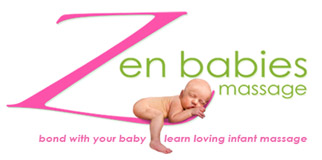Women with post-natal depression can improve the relationship with their babies if they give them gentle massages, research has found.
Dr Vivette Glover on the benefits of baby massaging
Post-natal depression not only harms the sufferer, but can severely affect the bonding process between mother and child.
This can subsequently harm the future development of the infant, leading to behavioural problems.
But a small study which compared women with post-natal depression who massaged their child, and those who did not, found tangible benefits after only a few sessions.
[ image: Dr Vivette Glover is calling for more mothers to be trained]
Dr Vivette Glover is calling for more mothers to be trained
Mothers who massaged their babies had a far more normal relationship with the child in day-to-day life.
Dr Vivette Glover, an expert in child stress from Queen Charlotte’s Hospital in London is keen to see the number of instructors trained to teach baby massage increased.
She said: “We were concerned because mothers with post natal depression have misery because they were depressed, but there is increasing evidence it affects the relationship with the baby.
“But those who went to a baby massage class did much better in mother baby interaction.
“They were back as normal mothers should be, enjoying their babies.”
Normal in other cultures
She said that baby massage was taken for granted in other cultures, such as in India, but was a tradition that “seemed to have been lost” in the UK.
Baby massage differs from ordinary massage in that it consists only of very gentle stroking and touching.
One convert to the practise, mother Rachel Yates, told the BBC: “It’s a really good way of getting to know your child and understanding what their body language means.
“You can massage them as long as they are not hungry or tired.”
Some GP surgeries offer baby massage classes routinely to mothers following the birth.
